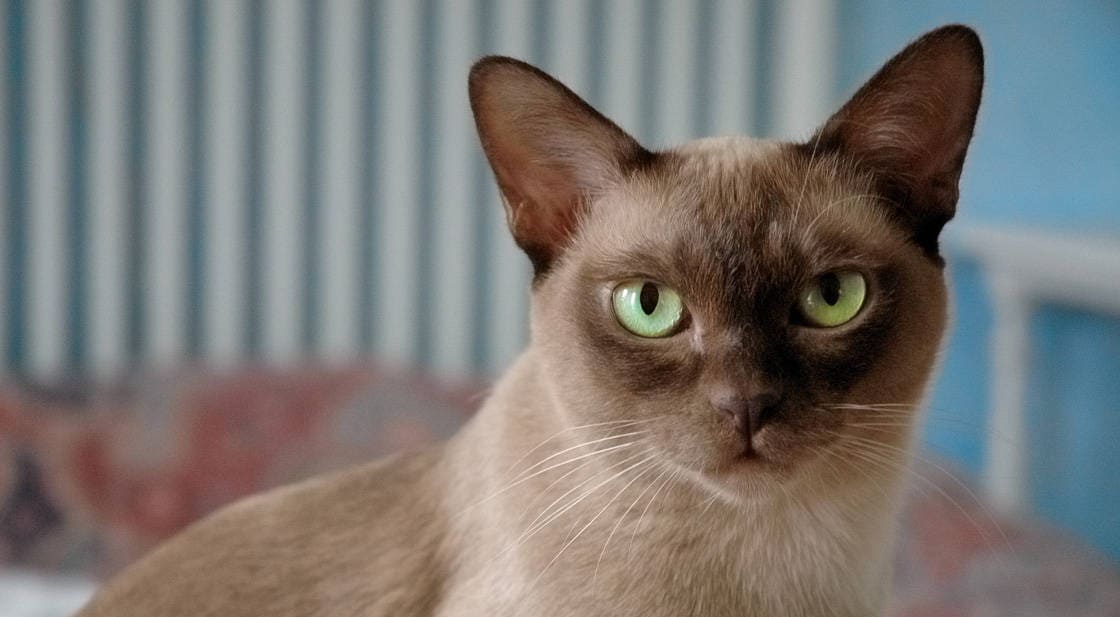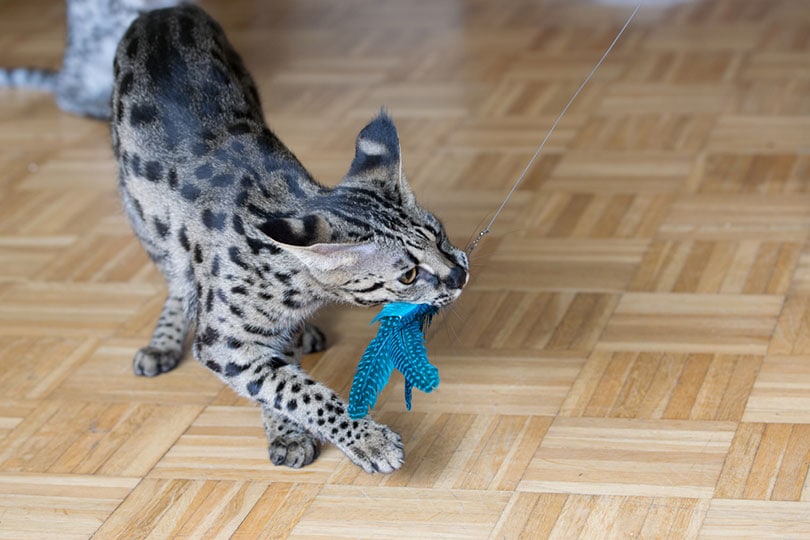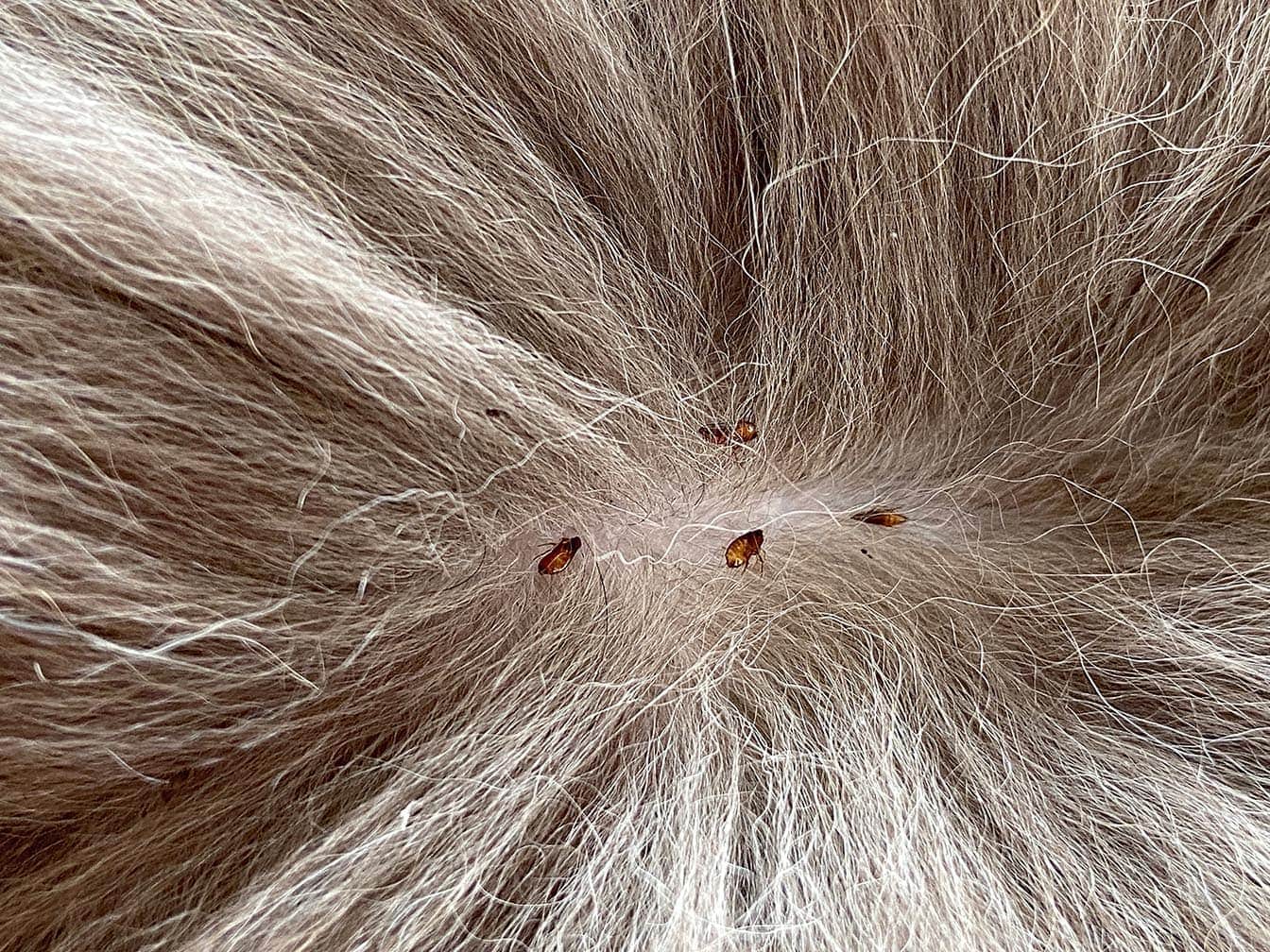Cornish Rex vs Sphynx: The Differences (With Pictures)
By Lorre Luther
Updated on

Click to Skip Ahead
Cornish Rex and Sphynx cats are incredibly popular companion animals. They have personality galore, unusual looks, and are almost always up for a bit of fun. Cornish Rex cats are incredibly energetic, and Sphynx cats are known for their loving and affectionate personalities.
Both Cornish Rex and Sphynx cats sport distinctive looks. Cornish Rex kitties have wavy soft coats that appear almost crinkled and huge ears. They even have curly whiskers! Most Sphynx cats are hairless, but some have light coats of fur. They also have enormous ears and loose skin, giving them a sweet, otherworldly appearance.
They’re both regularly mentioned as good choices for cat lovers looking for a feline who is less likely to cause allergic reactions in people.
Visual Differences
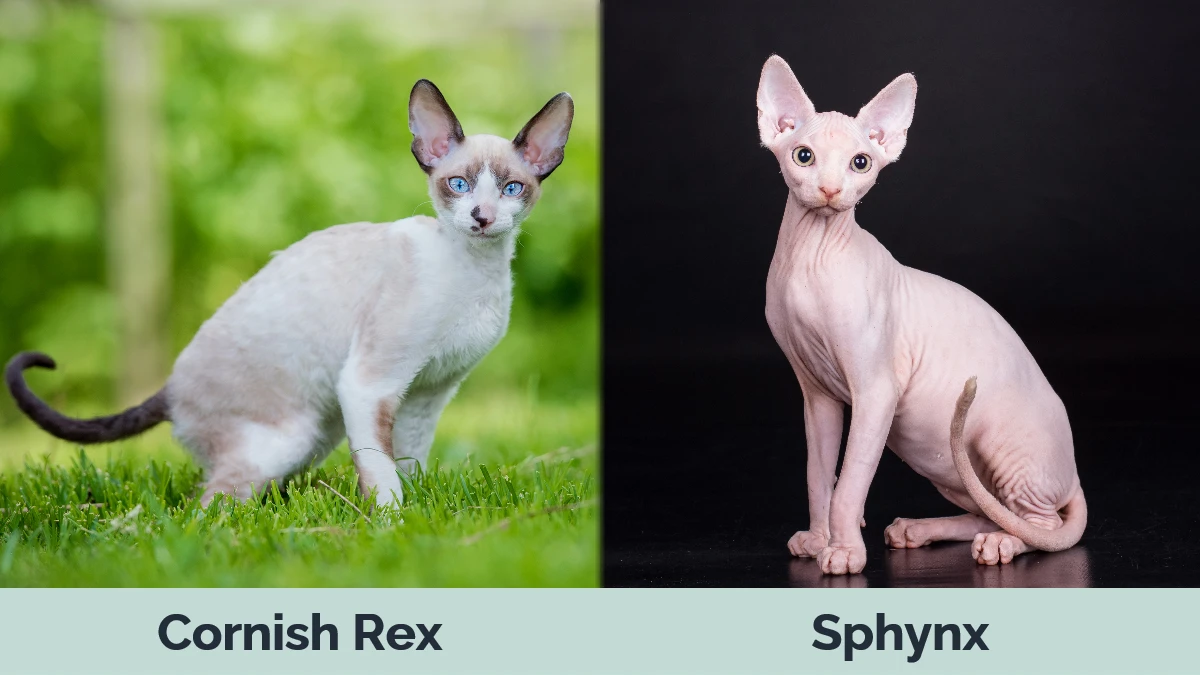
At a Glance
- Average weight (adult): 6–8 pounds
- Lifespan: 15–20 years
- Exercise: 20–45 minutes per day
- Grooming needs: Minimal
- Family-friendly: Yes
- Other pet-friendly: Often
- Trainability: Happy to interact, easier to train than most breeds
- Average weight (adult): 8–10 pounds
- Lifespan: 15–20 years
- Exercise: 20–45 minutes per day
- Grooming needs: Moderate
- Family-friendly: Yes
- Other pet-friendly: Often
- Trainability: Curious, intelligent, and eager to learn
Cornish Rex Breed Overview
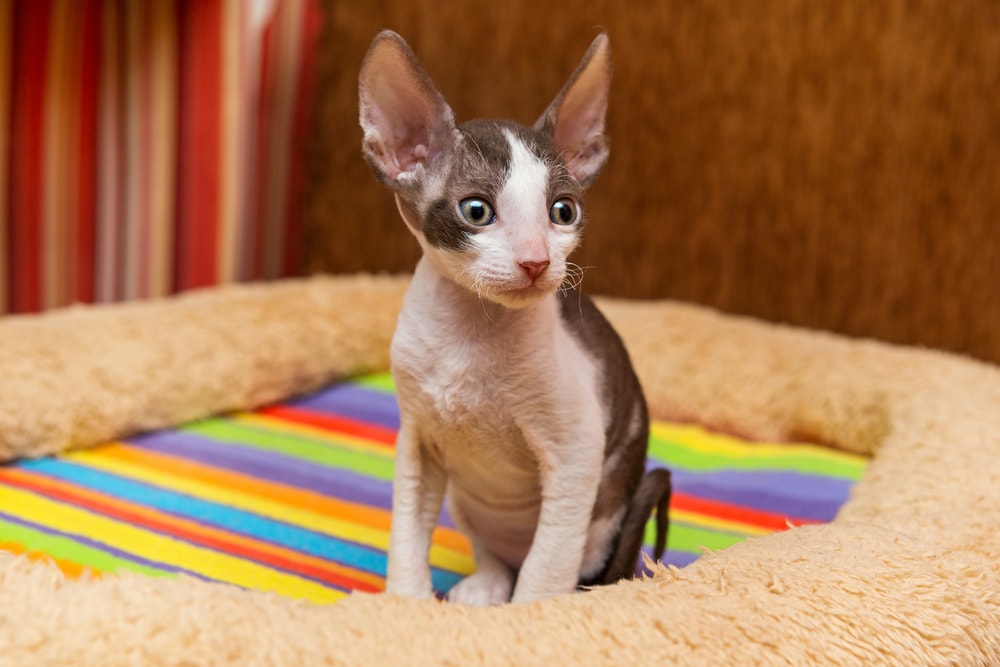
Cornish Rex cats are active, fun, and full of energy. They’re often incredibly easy to train, and most don’t require much grooming.
Personality and Character
Cornish Rex cats have outgoing, charming personalities. They’re curious, smart, and happy to insert themselves into any activity. Most are interested in interacting with people and are usually more than happy to communicate their opinions.
They don’t enjoy being alone, so they often do best in environments where they have several family members to entertain them. They do well on the road and can make wonderful therapy cats. While they like to spend time with people and bond deeply with their loved ones, many Cornish Rex cats would rather zoom around than cuddle.
Exercise and Training
Cornish Rex cats are usually happiest when exploring, getting into trouble, and running around. Physical activity is incredibly important for these cats, and they need several toys and climbing platforms to keep them entertained. Most can learn to play games like fetch quickly, particularly with clicker training and positive reinforcement. Short training sessions during which treats and praise are liberally provided are vital to keep Cornish Rex cats from losing interest and becoming bored.
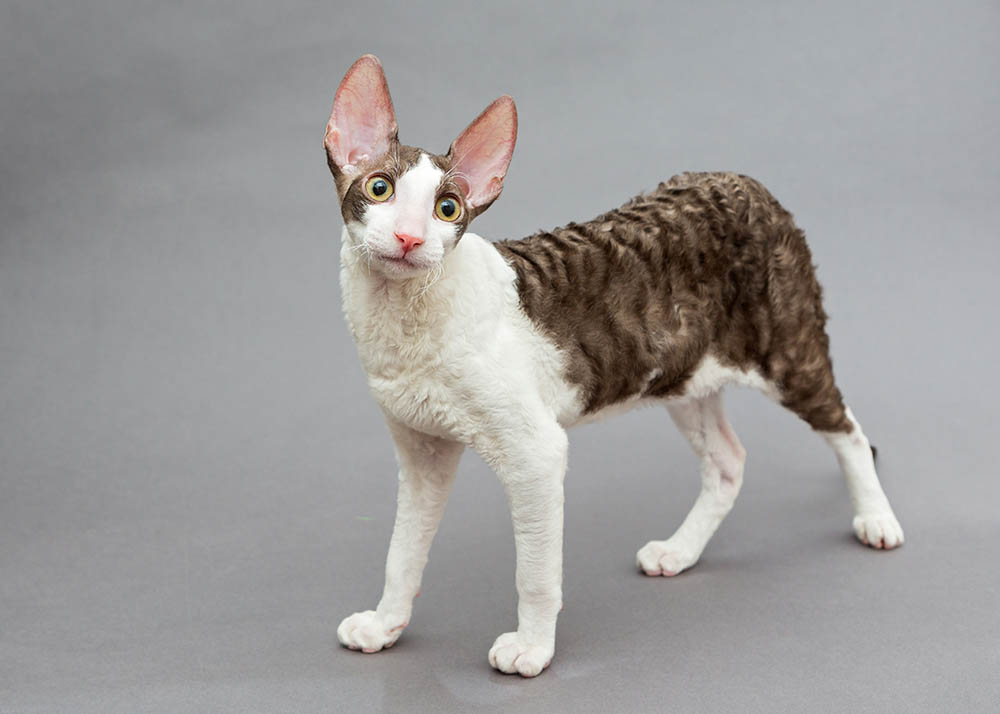
Health and Care
Cornish Rex cats are generally healthy and can live for 15 to 20 years. They don’t have any special dietary needs; most are fine as long as they get high-quality food full of animal protein.
Obesity is seldom a problem for Cornish Rex cats. They can suffer from a few breed-specific health conditions, including hypertrophic cardiomyopathy (HCM) and patellar luxation. When it comes to grooming, less is better with Cornish Rex cats. Their coats can be damaged by too much brushing.
Suitable For:
Cornish Rex cats are energetic, incredibly smart, and all about being involved with their favorite people. They’re easy to train, making them good choices for those looking for an active companion. Most are social, curious, and open to new experiences.
Cornish Rex cats often make great companions for those interested in exploring the world with a feline sidekick in tow. They’re often best suited for indoor environments as they can easily burn in the sun.
Sphynx Breed Overview
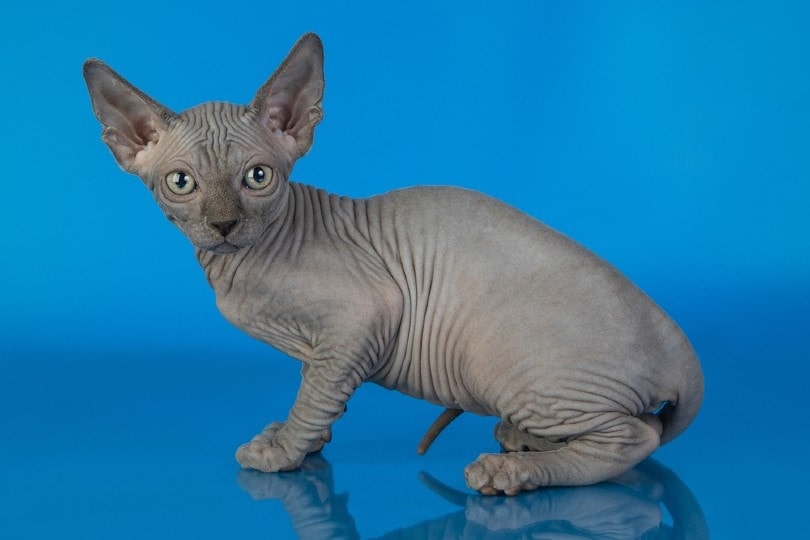
Sphynx cats are incredibly devoted to their favorite people. They’re smart and active but also happy to spend time just hanging out. While many live long lives, there are a few health conditions Sphynx cats are inclined to develop, and they require a fair amount of attention in the grooming department.
Personality and Character
Sphynx cats have affectionate, loving personalities. Most enjoy nothing more than spending time snuggling close to their favorite people for love and a bit of warmth! They often like to be held and petted and are frequently quite happy to engage with new people.
Many prefer to have company, so they often do best in homes where people are around during the day or where there are other pets for them to hang out with. Sphynx cats often have a flair for antics, and many have a particular penchant for shoulder surfing. They’re often described as having dog-like personalities.
Exercise and Training
Sphynx cats generally have a good bit of energy, but they’re also perfectly happy to curl up and mellow out, preferably close to something nice and warm. They’re smart and love people, so they’re generally quite easy to train, particularly since many are incredibly interested in food and treats. Although they’re playful cats, most only require about 20 to 45 minutes of daily exercise to stay healthy.
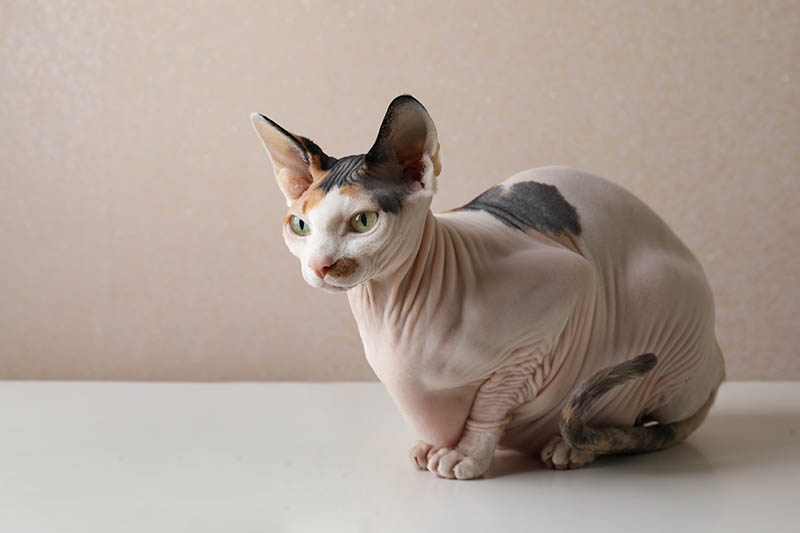
Health and Care
Sphynx cats can live 15 to 20 years, but there are a few breed-specific conditions to keep in mind, including hypertrophic cardiomyopathy and hereditary myopathy. Skin conditions, dental problems, and ear infections can also pop up. While Sphynx cats don’t have any hair, they need frequent grooming.
They require weekly baths to remove the oil buildup on their skin and keep their pores from clogging. Their ears should also be regularly checked to ensure they’re clear of wax and debris.
Sphynx cats should be indoor pets because they don’t have thick coats to protect them. They benefit from feline-friendly sunscreen when outdoors or when hanging out where they can get lots of sun, like bright windows. Keeping these hairless cats warm can also be challenging. Blankets, warm napping areas, and feline sweaters are essential to keep them warm in cold weather.
Suitable For:
Sphynx cats are great choices for families and individuals looking for a loyal, affectionate companion. They’re fun and full of energy, but they’re also happy to mellow out and cuddle. They’re friendly and happy to meet and interact with new people. They generally don’t do well on their own, and most thrive in homes where they spend lots of time with people or other companion animals.
Are Cornish Rex and Sphynx Cats Hypoallergenic?
No. Technically, hypoallergenic cats don’t exist. All cats produce the protein, fel d1, that causes most problems in people who are allergic to cats. It can be found in their fur, saliva, and urine. Sphynx cats may produce fewer allergens than other cats, but they can still cause allergic reactions in some people. Cornish Rex cats shed less than some other breeds with more traditional coats. They’re also considered good choices for people with allergies.
There can be a great deal of variation in how individuals react to cats of different breeds and even to individual cats of the same breed. Some people can be around one type of relatively hairless cat without having problems, while another causes them to reach for the Kleenex.
People can also be fine around one Sphynx cat and start sneezing when another walks into the room. There are several proteins that can trigger allergy symptoms, and cats all have unique protein mixes, which can cause varying reactions in humans.

Which Breed Is Right for You?
Both Cornish Rex and Sphynx cats make excellent companions; they’re people-oriented, active, curious, and love to be in the middle of whatever is going on! Cornish Rex cats have soft curly hair, delicate faces, and crinkly whiskers. Sphynx cats have huge ears and loose skin, and they are often hairless, but some have a soft layer of thin down or fur.
Cornish Rex cats prefer living in environments where they can get lots of attention, and many don’t like to be left alone for too long. Sphynx cats are super cuddlers, and they’re a bit less active than Cornish Rex cats. They’re entertaining pets and have been known to follow their favorite people around.
Cornish Rex cats don’t have high grooming requirements, but Sphynx cats require regular wipe-downs and baths to stay healthy. While Cornish Rex and Sphynx cats can be easier on some allergy sufferers than others, neither is technically hypoallergenic.
Featured Image Credit: Left – Holger Kirk, Shutterstock | Right – Anna Shvets, Pexels


